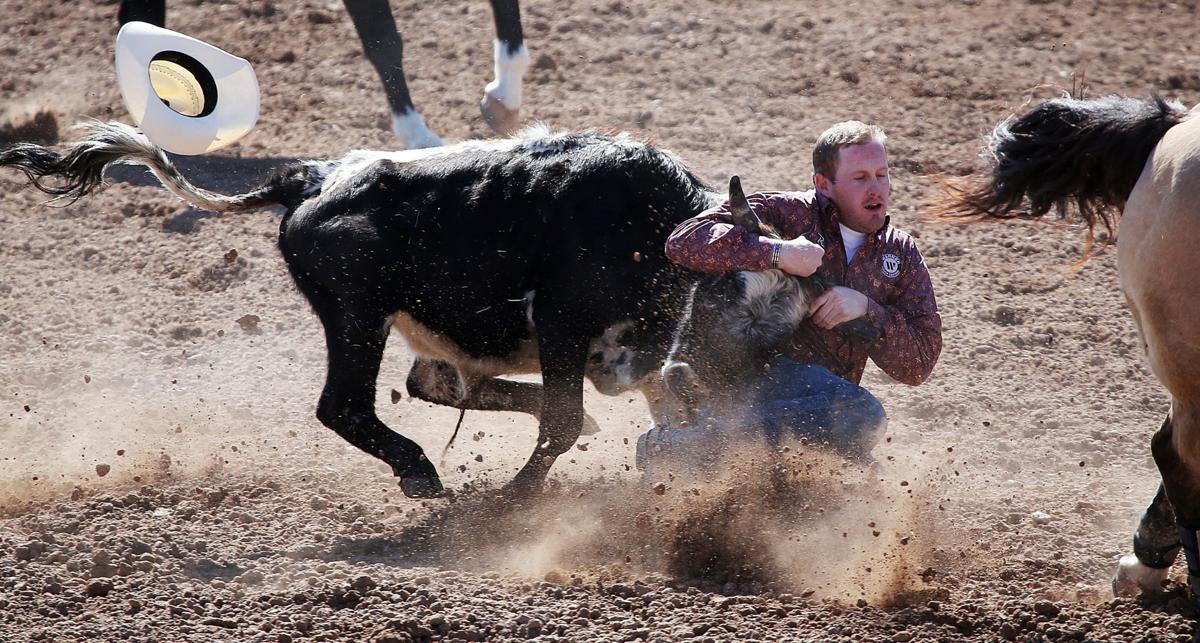With some activists arguing that the rodeo is tantamount to animal abuse, Tucson’s largest school district is considering renaming “rodeo break” — the longstanding tradition that gives local youngsters two days off from school in February, ostensibly to attend the Tucson rodeo and parade.
And the Tucson Unified School District is asking the public to weigh in on the possible name change — providing suggestions like “Tucson Heritage Days” and “Old Pueblo Days.”
But students need not worry. No matter what it’s called, it will still be a vacation from school.
What should Rodeo Break be called?
A handful of animal rights activists have taken issue with the school district honoring the tradition with the name, arguing that TUSD is setting a poor example by glorifying an event they say tortures animals. The activists took their complaints to TUSD Governing Board member Rachael Sedgwick, who supports the idea.
But Sedgwick’s fellow board members were hesitant to change the name. The board voted instead to post an unscientific survey on the district’s website, asking the public to weigh in on possible new names. A district spokesperson said it would take a few weeks to post the poll.
Sedgwick was the lone vote against the motion for a survey, saying she couldn’t support it because one of the options on the poll will be “rodeo days.”
Kim Kelly, a University of Arizona professor, was among a handful of animal rights activists who urged the board to ditch the name, saying it honors “a tradition which glorifies the abuse, torture, maiming and traumatizing of defenseless horses, steers and calves for days on end each year.”
She said the district shouldn’t use the word “rodeo,” which invokes “romantic images of fiercely independent and ruggedly handsome cowboys and a man’s brute superiority over beasts,” and moving away from it would send a message to students that words matter.
“In a city where ‘Be Kind’ has become the unofficial motto, isn’t it time for us to extend this concept to ensure that all Tucsonans, and those who come to visit us, human-animal and non-human-animal alike, are treated with kindness and respect?” Kelly asked the board.
Kim Flaherty, an animal rights activist, acknowledged the rodeo has deep roots in Tucson but said society’s views on animals change over time.
“Tradition or not, TUSD should not endorse or affiliate itself, even nominally, with an event that harms animals,” Flaherty said.
She cited the demise of Ringling Bros. and Barnum & Bailey Circus, declining attendance at SeaWorld and argued that the rodeo would go the same way. And she noted that the U.S. Humane Society, People for the Ethical Treatment of Animals, The Animal Legal Defense Fund and other animal rights groups have all denounced rodeos.
“Even if you aren’t inclined to think the wrestling, wrangling, roping and spurring of livestock animals to be abusive or cruel, they certainly aren’t examples of kind and humane treatment,” she said.
The first Tucson rodeo and parade was held in 1925, and Tucson schoolchildren have had the days off since the 1950s.
The University of Arizona and city of Tucson government used to shut down for the two days as well, according to Herb Wagner with the Tucson Rodeo Parade, the official kickoff event for the rodeo and what is billed as the largest nonmechanized parade in the United States.
All of the major Tucson-area school districts offer students the days off, as well as some private schools. All call it rodeo days, either formally or informally.
Wagner said the reason children are getting the days off is to celebrate Tucson’s rodeo, and the district shouldn’t change that to appease a handful of animal rights activists.
“I think their thought process behind it was flawed. I think they’re listening to just one side of the argument,” he said.
And while many families nowadays use the vacation for skiing or Disneyland trips, many still attend the rodeo and parade.
Last year, an estimated 100,000 people showed up for the parade and the rodeo was completely sold out for three days, Wagner said.
Gary Williams, general manager of the Tucson Rodeo, called complaints of animal abuse “standard anti-rodeo rhetoric” and feared that if the holiday were renamed there would be no guarantee the holiday would be scheduled during the rodeo.
He suggested that if TUSD does change the name, it should be called “Fiesta de los Vaqueros” break, the overarching name for both the rodeo and parade.
Williams cited a study by the Professional Rodeo Cowboys Association from 2016 that found that of the nearly 62,000 animals that participated in 159 rodeos, only 38 were injured.
“That’s anything from rope burn to broken leg. Any time animals need medical attention,” he said, noting that’s probably lower than the injury rate for the cowboys. And there were no animal fatalities.
“Nobody wants to see the animals mistreated or abused or anything like that. And one of the things we often find in talking to (critics) is that they don’t realize these are not pets. The hide on these animals is much thicker than our skin,” he said.





